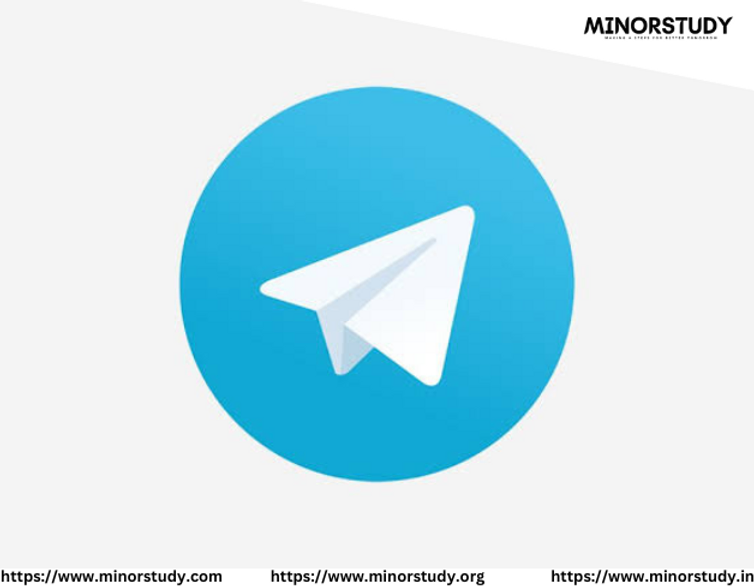🟦 1. Introduction
In a world filled with constant digital noise, Telegram stands out — not just as a messaging app, but as a movement for freedom, privacy, and power in communication. With no ads, cloud-based access, and encryption, Telegram has become a quiet giant in a loud digital landscape.
- 🟦 1. Introduction
- 🟦 2. What Is Telegram?
- 🟦 3. The History of Telegram
- 🟦 4. Timeline of Telegram’s Evolution
- 🟦 5. 11 Shocking Telegram Facts
- 🟦 6. How Telegram Impacts Daily Life
- 🟦 7. Why Telegram Is Significant in Today’s World
- 🟦 8. Cultural Use and Observances
- 🟦 9. Telegram Wishing Culture and Community Vibes
- 🟦 10. FAQs About Telegram
- 🟦 11. Summary of Important Points
- 🟦 12. Conclusion
Let’s explore its fascinating history, human impact, and shocking truths that changed how we talk, share, and even rebel.
🟦 2. What Is Telegram?
It is a cloud-based messaging platform known for its:
End-to-end encryption
Massive group support (up to 200,000 members)
Channel broadcasting
File sharing (up to 2GB per file)
Bot automation and custom APIs
Speed and security
Unlike WhatsApp or Facebook Messenger, Telegram focuses on privacy and control. It doesn’t rely on ads or harvest user data for profit.
🟦 3. The History of Telegram
Founded by: Pavel Durov and Nikolai Durov (Russia)
Launched on: August 14, 2013
Headquarters: Dubai (after fleeing Russian control)
Initial Motivation: To create a secure platform free from censorship and surveillance
It began as a response to state control of digital communication in Russia. Pavel Durov, also the creator of VK (Russia’s version of Facebook), was forced out of VK by the Kremlin, which motivated him to build something uncontrollable.
🟦 4. Timeline of Telegram’s Evolution
| Year | Milestone |
|---|---|
| 2013 | Telegram launched for iOS and Android |
| 2014 | Secret Chats, Self-Destructing Messages introduced |
| 2016 | Channels and Supergroups added |
| 2017 | Telegram reaches 100M active users |
| 2018 | Telegram banned in Russia — goes decentralized |
| 2020 | Group video calls + polls & quizzes introduced |
| 2021 | Cross-platform syncing, web updates, and screen sharing |
| 2022 | Premium subscriptions launched (still ad-free) |
| 2023 | Telegram hits 800M monthly users |
| 2025 | Used in over 190 countries, especially during social movements and censorship crackdowns |
🟦 5. 11 Shocking Telegram Facts
It was built in exile — literally while the founders were fleeing state persecution.
It supports groups with up to 200,000 users — more than any mainstream app.
It is one of the few platforms banned by governments (like Iran, China, and Russia) because of its uncensored nature.
Over 700 million people use Telegram monthly as of 2025.
It allows anonymous accounts using blockchain-style usernames.
Many freedom movements (e.g., Belarus, Iran, Hong Kong) used Telegram as their communication base.
Files up to 2GB can be shared freely — no compression.
The bots power everything from quizzes to e-commerce.
In 2022, Telegram launched a Premium model without ads — fully optional.
It has no algorithmic feed — you only see what you subscribe to.
It is home to millions of educational, entertainment, and political channels — entirely user-driven.
🟦 6. How Telegram Impacts Daily Life
Here’s how Telegram reshapes real-life behavior:
✨ Personal Use:
Families share photo albums privately.
Students receive notes, PDFs, and reminders.
Couples use secret chat for added intimacy.
✨ Professional Use:
Companies use bots for support and feedback.
Freelancers run portfolios and client channels.
Coaches and influencers build private knowledge hubs.
✨ Social and Activist Movements:
Telegram was crucial during protests in Iran, Belarus, Myanmar, and India.
People use Telegram to bypass internet blocks via proxies and VPNs.
🟦 7. Why Telegram Is Significant in Today’s World
🔐 Privacy-Centric:
No tracking, no metadata selling, and secret chat support make Telegram a safe zone in a data-driven world.
🗽 Free Speech Enabler:
While it can be controversial, Telegram gives voice to suppressed groups, whistleblowers, and communities in danger.
🧠 Learning & Empowerment:
From free coding courses to religious sermons to mental health support, Telegram is a 24/7 knowledge exchange.
💰 Economic Impact:
Small creators earn through private premium channels and share paid content securely.
🟦 8. Cultural Use and Observances
Festivals: The groups buzz with celebration wishes, virtual parties, and religious blessings.
Exam Season: Students use channels to prepare, revise, and support each other.
Elections and Politics: Used for campaign updates, debates, and uncensored news.
Emergency Relief: It helped share alerts during COVID-19 lockdowns, earthquakes, and more.
🟦 9. Telegram Wishing Culture and Community Vibes
It is where emotional connections meet digital format. Users send:
Digital greeting cards & stickers for birthdays, festivals, or weddings
Voice wishes to celebrate or console
Secret messages for love confessions or apologies
Spiritual content: Daily blessings, scriptures, meditations
Unlike other platforms, The users choose their communities — making interaction more personal and intentional.
🟦 10. FAQs About Telegram
Q1. Is Telegram safer than WhatsApp?
Yes — It doesn’t store chat data on your device unless you allow it. It also supports secret chats and is not tied to Meta (Facebook).
Q2. Is Telegram banned anywhere?
Yes — temporarily or permanently in Iran, China, and Russia due to censorship resistance.
Q3. Can I use Telegram for business?
Absolutely. Many creators, coaches, and small businesses use to build loyal customer groups and distribute paid content.
Q4. How is Telegram free without ads?
It runs on user funding and now offers an optional Premium plan.
Q5. Are Telegram messages really private?
Yes — especially in Secret Chat mode, which uses end-to-end encryption and doesn’t allow screenshots or forwarding.
🟦 11. Summary of Important Points
| Feature | Impact |
|---|---|
| Privacy | No ads, no tracking — user-focused |
| Size & Scale | Massive groups, unlimited sharing |
| Social Power | Used during uprisings, protests, and civil movements |
| Daily Utility | Education, business, family use |
| Culture | Wishing, emotional communication, and digital love |
| Freedom Tool | For those who live under censorship or surveillance |
| Economic Tool | Premium channels = income for creators |
🟦 12. Conclusion
Telegram is more than an app. It’s a revolution.
It’s a platform that represents freedom, independence, and authentic human communication in a world increasingly dominated by data farming and algorithmic noise.
While it’s not without controversies — such as misuse by extremist groups or unregulated content — its core mission stands: to give people control over their digital lives.
Whether you’re sending a loving good night voice note, running a teaching channel, or leading a social movement, Telegram empowers you with privacy, speed, and clarity.








